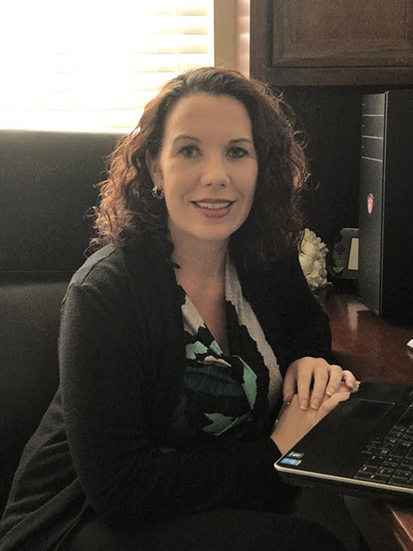
To most people, “respiratory care education” means training the next generation of therapists or RTs already on the job. But education in respiratory care isn’t limited to RTs. Other clinicians need it too, and Angela Burney, BS, RRT, an AARC member from Texas, has found that her passion lies in providing it. She explains why —
When did you become an RT and what drew you to the profession?
I became a respiratory therapist in 2007. I knew that I wanted to work in health care. It was important for me to work in a demanding field that was constantly growing. I toured some schools and gathered information about different programs to see what would fit me best. I ended up choosing respiratory therapy based on stories and experiences that my sister, already a respiratory therapist, shared with me.
Where did you work when you first started out in the field and what did you like about that job?
When I first graduated, I went to work at a place called Healthways. In this role, I was a disease manager and educator. I loved this job for many reasons. This job was primarily over the phone, so I was able to talk to a variety of patients from all over the United States and offer ways to manage their disease process and help them improve their quality of life.
How did you transition into your current role as a respiratory therapist consultant at Century Rehab and what pieces of your education, background, and experience do you think helped you get the job?
I was working as a clinical liaison when I came across this amazing opportunity. My passion has always been to educate and help to ensure anyone taking care of patients has the appropriate amount of knowledge and resources to care for that patient. I believe the combination of working previously as an educator, bedside RT, and clinical liaison — and obtaining my bachelor’s degree— have all played a role in finding this position.
What does the job entail?
I follow up with over 80 facilities to offer quarterly educational in-services and audits. During each visit at a facility I offer a respiratory training in-service, followed by a trach in-service. The goal of these in-services is to make sure that the facility has the current education and techniques to manage respiratory patients. After I complete the in-service I do an audit of their respiratory flow sheets to make sure that they are collecting and documenting the correct information to assist the facility in achieving maximum reimbursement.
How is your RT education, and background as a bedside RT, helping you in the job?
While I loved my education job right out of school, I ended up leaving because I felt like I needed more experience in bedside care. Bedside care was amazing and I love working with patients, but I am also the type of person who challenges herself and always wants to achieve more. Using the skills that I achieved throughout my various roles helped me become a more well-rounded educator. I may not be working one-on-one with patients anymore, but I am educating people that do. My passion for educating and caring for others has made this job a great fit.
What would you say are the biggest challenges and the biggest rewards that come from working as a respiratory therapist consultant in the rehab setting?
The biggest challenge would definitely be the traveling involved. Most of the facilities are in the state of Texas, but some of the facilities are far enough away that I need to fly. The biggest reward in this position is making sure that all health care workers involved in a patient’s care are up-to-date and more comfortable with respiratory patients. There is a reason that respiratory therapy exists and I am happy to spread that message. Century has given me unlimited support and encouragement to grow and make this program the best it can be.
What advice do you have for other respiratory therapists who would like to work in a position such as the one you have today?
The only advice I can offer for any respiratory therapist is to love what you do, believe in your profession and the importance of it, and anything is possible. Educating does require a lot of patience and determination, so make sure this would be the best fit for you. Never stop pushing yourself or continuing your own education as well.





